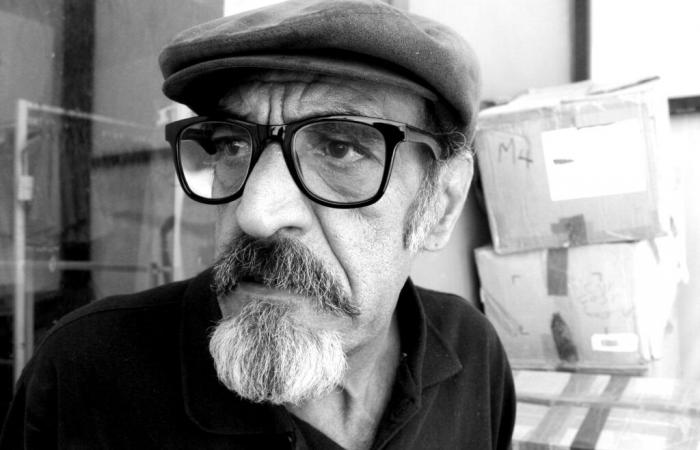Next year, he will be able to take pride in his sixty years of service to theater and cinema, not to mention the countless series and TV films in which he has portrayed an impressive gallery of characters. Abdellatif Chagra does not belong to the tribe of “did you see me” who parade pompously on Instagram and other Facebook. Over the decades, his astonishing discretion has become his trademark. “Having led a dual existence between my almost priestly love of dramatic art and my long career as an executive within the Marrakech Autonomous Water Authority (RADEEMA), I was forced into a certain ‘obligation of reserve’ ‘. Although retired for several years, I continue to observe this discretion, and it suits me perfectly,” he assures. A lot of water has flowed under the bridges of Tensift since 1965 when the student from the Lycée Hassan II in Marrakech was co-opted for his very first role in the play “Intilaq” by Abdelhak Abouricha. This was the start of a long series of plays within a multitude of Marrakech troupes including “Al Anwar” (1967-1968), “Noujoum al Hamra” (1969-1970), “Comédia” (1971- 1979). Hundreds of performances followed where Abdellatif Chagra played distinguished roles under the direction of Mohammed Hassan El Joundi, Mohamed Saïd Afifi, Abdelslam Chraïbi, Driss Maârouf and many other directors. In terms of cinema, Chagra distinguished himself in a long series of roles under the direction of the most famous Moroccan and foreign directors. “Chambre noire” and “Fine machi a moshe” by Hassan Benjelloun, “Mabrouk” by Driss Chouika, “Jabal Moussa” by Driss Mrini, “Androman” by Azelarab Alaoui… His performances in series and TV films are countless. He thus held more or less important roles under the direction of Hicham Jbari, Krimou Derkaoui…
Legendary elegance
Abdellatif Chagra is one of the rare Moroccan performers whose “face” constitutes a major asset. Like the late Hassan Essakalli, Mohamed Majd and Mohamed Habachi, he was able to convince a myriad of foreign directors of his talent. Thus, he participated in mega productions of “The Bible”, “Indiana Jones”, “Jerusalem”, “Noah”, “Kandahar”, “Tora Bora”… The child of “Derb Dabachi” who grew up a few steps from Place Jamaâ El Fna has not changed one iota of his approach and has never lost his accent. He does not take a step along the main arteries and adjacent streets of the “Guéliz” district without being greeted or stopped by passers-by for selfies. Its legendary elegance has always been draped in foolproof simplicity. But that hardly prevents him from dispensing his coups d’état…d’âme wherever he meets his friends around a duly prolonged aperitif. His formidable claws against them, however, do not involve any form of malice. Far from arousing any disapproval whatsoever, his mocking humor, often dazzling with provocation, but served in the delicious setting of a Marrakech accent, often triggers laughter from his targets, including in the middle of filming. So many sequences interrupted by his witticisms even though the cameras are already in “action” mode! » Behind the wall of the never-assumed timidity of the grandson of Caïd Jilali Chagra, mischievously hides the acrobat who has made audacity his mode of brilliance. The late Mohamed Chahramane, author of the most famous texts of the Jil Jilala group, never stopped paying tribute to Chagra’s love for the art of Melhoun. From memory, the actor can recite the longest “qsida” of the sheikhs of Marrakech, Fez or Meknes. The host Hicham Lamghari will never forget his difficulty in concluding a radio interview with a Chagra who was determined to finish the recitation of the longest “qsida” by Sidi Kaddour Alami. His compatriot from Marrakech, the actor My Hassan Alaoui, says: “In all the fictions in which I have played alongside Chagra, the lines are never intact, as the latter insists on putting his mark on them, whether the director likes it or not. Besides, directors have always appreciated that.” The late Saïd Seddiki (A’zizi) did not hesitate one day to reward Abdellatif Chagra with a superb “If you didn’t exist, we would have created you!” », thus paraphrasing the great Voltaire.
Abdessamad Mouhieddine, journalist and anthropologist.






